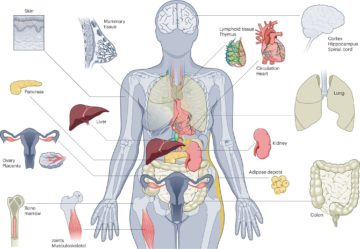Mark Wanner in Phys.Org:
 Multiple researchers at the Jackson Laboratory (JAX) are taking part in an ambitious research program spanning several top research institutions to study senescent cells. Senescent cells stop dividing in response to stressors and seemingly have a role to play in human health and the aging process. Recent research with mice suggests that clearing senescent cells delays the onset of age-related dysfunction and disease as well as all-cause mortality.
Multiple researchers at the Jackson Laboratory (JAX) are taking part in an ambitious research program spanning several top research institutions to study senescent cells. Senescent cells stop dividing in response to stressors and seemingly have a role to play in human health and the aging process. Recent research with mice suggests that clearing senescent cells delays the onset of age-related dysfunction and disease as well as all-cause mortality.
Could therapies that remove senescent cells—called senotherapeutics—also improve the health of humans as we age? Answering this question and more has the potential to significantly advance human health, and the National Institutes of Health (NIH) has launched an extensive research initiative for this very purpose. The SenNet Consortium, a collaboration of institutions from throughout the United States, was initially launched in 2021 with centers established to gather and analyze human data. The researchers will collect and analyze 18 tissues from healthy humans across lifespan to discern the full scope of senescent cells and how they may contribute to the aging process.
More here.
